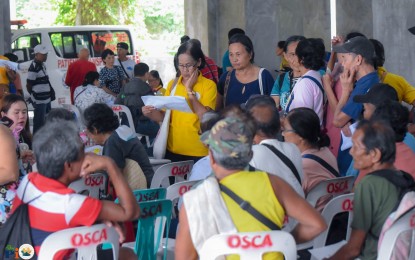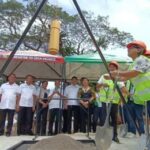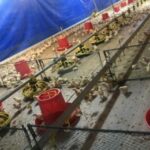MANILA – The National Commission of Senior Citizens (NCSC) is increasing efforts to promote Alzheimer’s and dementia awareness while expanding employment and livelihood opportunities for older Filipinos, especially those without pensions.
During an interview, NCSC Chairperson and CEO Dr. Mary Jean Loreche stated that the agency plans to meet with doctors from the Philippine General Hospital and members of the Alzheimer’s Disease Association of the Philippines to coordinate a national intervention program.
“We will begin this initiative after today’s interview, as we have long planned to collaborate with the Alzheimer’s Disease Association of the Philippines,” Loreche said.
She explained that the program will proceed in stages, starting with education and awareness campaigns.
“We will first focus on raising awareness—helping the public understand what Alzheimer’s and dementia are,” she added.
Promoting Mental Wellness and Social Connection
Loreche noted that the NCSC is also addressing emotional and cognitive wellness among the elderly, as many experience isolation, depression, and anxiety.
“We must remind them that they are valuable to our nation and communities,” she said.
The Commission is implementing “social prescribing” in community-based care centers, where seniors can interact with peers and younger generations to foster well-being.
Retooling and Employment for Non-Pensioned Seniors
Loreche detailed ongoing efforts to provide skills training and job opportunities for elderly Filipinos without pensions.
“We are coordinating with the National Institutes of Health and the Institute on Aging to finalize medical guidelines,” she said.
These guidelines will ensure reemployment opportunities align with seniors’ health and capabilities.
The Commission is also partnering with TESDA and the Department of Tourism to offer region-specific training based on seniors’ interests.
“What are their interests? Surprisingly, agribusiness is their top priority,” she said.
The NCSC is preparing a roundtable discussion in Kidapawan City to train seniors in fruit preservation, in collaboration with TESDA and DOLE.
Additionally, the agency has received applications for seniors to train in tourism-related roles, such as tour guiding in historical sites and museums.
Training programs are already underway.
Proposed Reforms in Senior Citizen Hiring and Voting
Regarding employment, Loreche stated that changes in benefits would require legislative action.
“Benefits cannot be implemented immediately without revisiting the law,” she said.
Meanwhile, the NCSC is working with LGUs and the private sector to provide honoraria, funding, and training for senior workers.
The agency will also engage policymakers to discuss extending the working age beyond current limits.
“The new normal today is 70, not 60 or 65,” she noted.
Loreche also mentioned that the NCSC is collaborating with the Commission on Elections (Comelec) to propose expanded voting privileges for seniors.
“We aim to extend voting to an entire day before the general elections,” she said.
She recommended improvements such as accessible polling sites, medical kits, hydration stations, and dedicated lanes for seniors.
Government Support
Loreche assured elderly Filipinos that the government is committed to their welfare and inclusion.
“Our elderly are truly valued by this government,” she said.
She highlighted initiatives like the expanded centenarian cash gift, participation in employment programs, and the development of community care centers as part of the administration’s agenda.
“We want to ensure our older adults face no difficulties during election day,” she added.






